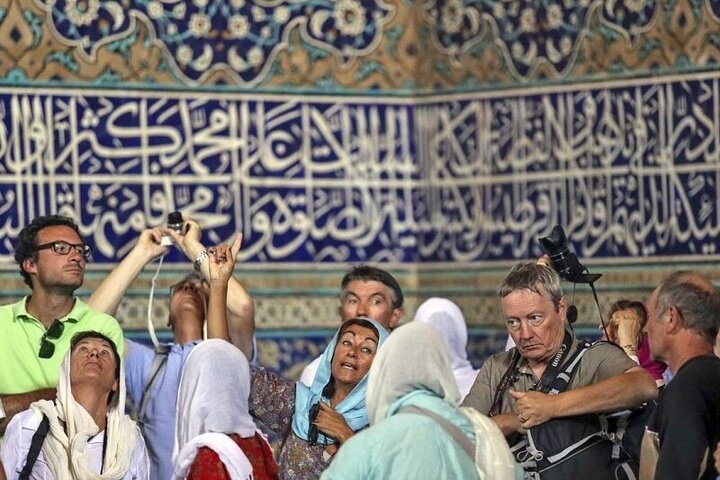On February 4th, 32 nations, including Zimbabwe, shall be eligible to waive their visa requirements for Iran.
The visa-waiver program was reportedly approved for India, the United Arab Emirates, Bahrain, Saudi Arabia, Qatar, Kuwait, Indonesia, Brunei, Japan, Singapore, Cambodia, Malaysia, Vietnam, Brazil, Peru, Cuba, Mexico, Bolivia, Venezuela, Bosnia and Herzegovina, Serbia, Croatia, Belarus, Lebanon, Uzbekistan, Kyrgyzstan, Tajikistan, Tunisia, Mauritania, Tanzania, Zimbabwe, Mauritius, and the Seychelles.

“Citizens of the designated countries, as announced earlier, will no longer require visas to travel to Iran starting on February 4. Instead, they can simply purchase a ticket to visit the country," the Deputy Foreign Minister for Consular, Parliamentary, and Iranian Expatriates Affairs said on Wednesday.
This move is part of an initiative aimed at promoting tourism and easing travel restrictions for visitors from selected nations, Alireza Bigdeli said.
The official noted the Ministry of Foreign Affairs has communicated the executive guidelines for the unilateral visa waiver with certain countries to the relevant authorities.
He further emphasized that citizens of these countries intending to explore Iran can travel without the need for visas, and they can enter the country by simply acquiring a ticket.
While detailing the specifics for Indian citizens, Alireza Bigdeli clarified that travelers from India can enter Iran through air entry points without the necessity of visas. However, for those choosing land border crossings, they will still be required to obtain visas.
This significant development is anticipated to boost tourism and foster international relations as Iran opens its doors to visitors from selected countries without the traditional visa hurdles.
“The government intends to open the country’s doors to the world…. And this decision is both courageous and deliberate by the government,” the tourism minister Ezzatollah Zarghami said.
“The decision helps foil negative advertisements, rumors, and fear-mongering about Iran,” Zarghami said. “The scheme is expected to usher in a new era of tourism development for Iran; a new chapter of prosperity and tourism development that puts an end to negative propaganda and Iranophobia.”
The visa-waiver program was reportedly approved for India, United Arab Emirates, Bahrain, Saudi Arabia, Qatar, Kuwait, Indonesia, Brunei, Japan, Singapore, Cambodia, Malaysia, Vietnam, Brazil, Peru, Cuba, Mexico, Bolivia, Venezuela, Bosnia and Herzegovina, Serbia, Croatia, Belarus, Lebanon, Uzbekistan, Kyrgyzstan, Tajikistan, Tunisia, Mauritania, Tanzania, Zimbabwe, Mauritius, and Seychelles.
Moreover, the Islamic Republic had previously visited cancelations with some countries like Turkey, the Republic of Azerbaijan, Oman, China, Armenia, Lebanon, and Syria in various forms—unilateral, bilateral, and group visa cancellations, including airport visas, which were implemented in some cases. The privilege has been granted to tourist groups from Russia based on a mutual agreement inked between Tehran and Moscow.
Earlier in January, Zurab Pololikashvili, the Secretary-General of UN Tourism, formerly UNWTO, warmly welcomed Iran’s decision for border easing expressing optimism about a vibrant future for tourism in the ancient country.
He also underscored Iran’s significant role in Asian tourism as he pointed to the country’s rich historical and cultural heritage. Pololikashvili expressed hope that the visa waiver policy would usher in a bright and prosperous future for tourism in Iran.
The UN tourism chief made the remarks in Spain during his meeting with Iran’s deputy tourism chief Ali-Asghar Shalbafian, organized to schedule his upcoming visit to the Islamic Republic to attend the 17th Tehran International Tourism & Related Industries Exhibition.
The latest data provided by the tourism ministry suggests the number of foreign arrivals in the country reached 4.4 million during the first eight months of the current Iranian year (started on March 21), which shows 48.5 percent compared to that of last year.
The Islamic Republic expects to reap a bonanza from its numerous tourist spots, such as bazaars, museums, mosques, bridges, bathhouses, madrasas, mausoleums, churches, towers, and mansions, of which 27 are inscribed on the UNESCO World Heritage list.
